The Southerner is a 1945 American drama film directed by Jean Renoir and based on the 1941 novel Hold Autumn in Your Hand by George Sessions Perry. The film received Oscar nominations for Best Director, Original Music Score, and Sound. Renoir was named Best Director by the National Board of Review, which also named the film the third best of 1945. The film, now in the public domain, portrays the hardships of a poor family struggling to establish a cotton farm in Texas in the early 1940s.
| The Southerner | |
|---|---|
Theatrical release poster | |
| Directed by | Jean Renoir |
| Produced by | Robert Hakim David L. Loew |
| Screenplay by | Hugo Butler Jean Renoir William Faulkner Nunnally Johnson |
| Based on | Hold Autumn in Your Hand 1941 novel by George Sessions Perry |
| Starring | Zachary Scott Betty Field J. Carrol Naish |
| Music by | Werner Janssen |
| Cinematography | Lucien N. Andriot |
| Edited by | Gregg C. Tallas |
| Distributed by | United Artists |
Release date | May 18, 1945 |
Running time | 92 minutes |
| Country | United States |
| Language | English |
| Budget | $750,000 |
Screenplay
As the film opens, Sam Tucker (Zachary Scott) is a migrant worker in Texas picking cotton in a sunbaked field along with his wife Nona (Betty Field) and his elderly Uncle Pete. Pete suddenly collapses due to the extreme heat and to what he blames as "my darned old heart". Before he dies, he tells his nephew, "Work for yourself; grow your own crops." Sam heeds his uncle's advice, so he, Nona, their children Daisy and Jot, and "Granny" (Beulah Bondi) leave the migrant camp and set out to work a vacant tenant farm with little more than two mules, a second-hand plow, and some cotton seed and fertilizer. The land that the family leases includes only a decaying shack and a well, a dry one. In immediate need of drinking water, Sam visits a gruff neighboring farmer, Henry Devers (J. Carrol Naish), who reluctantly allows the Tuckers to share water from his well.
Sam and his family nearly freeze and starve during their first winter on the farm, surviving largely on a limited diet of opossums, raccoons, and other small game that he is able to shoot. As spring arrives, Jot falls ill with "spring sickness". The town doctor informs Nona that the boy needs more diverse, vitamin-enriched foods, including vegetables, fruits, and milk to survive. The Tuckers immediately plant a garden, but its produce will take time to mature. Daily servings of milk would provide the suffering Jot with some timely relief, but the family cannot afford to buy or even rent a cow.
Sam's friend Tim (Charles Kemper) offers to help get him a factory job that pays the attractive wage of seven dollars a day. Sam, though, remains determined to succeed as a farmer. Soon the family's prayers are answered when Harmie, who owns the local general store, and Tim arrive in Harmie's flatbed truck with a milk cow, which young Daisy names "Uncle Walter." The family's cotton crop and the much-needed vegetable garden they planted finally begin to flourish. Meanwhile, the embittered Devers and his strange nephew Finlay (Norman Lloyd) plot to ruin the Tuckers so Devers can buy the tenant farm for a cheaper price from its owner.
After Finley destroys the Tuckers' garden, Sam confronts Devers at his farm. There Devers, armed with a knife, declares he will no longer share his well water, whereupon the two men have a near-deadly fight. Sam leaves and Devers gets a rifle and follows him. Soon he finds Sam at the nearby river pulling in a fishing line on which he has hooked "Lead Pencil," an enormous catfish that Devers has been trying to catch for years. In return for the fish and the bragging rights that he was the one who caught it, Devers agrees to give Sam his garden and allow him continued access to his well, a deal that effectively puts an end to the trouble between the two families.
Harmie (Percy Kilbride) now marries Sam's mother, and a party is held at his general store to celebrate the wedding. Life at last seems to offer true promise for the Tuckers amid the joy of that occasion. Unfortunately, a violent rainstorm rolls in as the party is ending. The next day the family returns to their farm, where heavy winds and flooding from the storm have ruined their entire cotton crop and ravaged their home. Sam, stunned by the sudden devastation, lets Tim accompany him as he searches for the family's missing cow. They find the animal alive but struggling in the swollen river. Tim nearly drowns in the deep water, but Sam rescues him. After pulling his friend from the river, Sam tells him that he is giving up farming and is now willing to take a factory job. However, upon returning again to his battered home, he reconsiders his decision about quitting once he sees the resilience of his wife and grandmother, who are busy cleaning up what remains of the house and professing their resolve to start over again. The film ends with Sam and Nona, months after the flood, standing together in a freshly plowed field preparing for a new season and a new crop.
- Zachary Scott as Sam Tucker
- Betty Field as Nona Tucker
- J. Carrol Naish as Henry Devers
- Beulah Bondi as Granny Tucker
- Percy Kilbride as Harmie
- Charles Kemper as Tim
- Blanche Yurka as Mama Tucker
- Norman Lloyd as Finlay
- Estelle Taylor as Lizzie
- Paul Harvey as Ruston
- Noreen Nash as Becky Devers
- Jack Norworth as Dr. White
- Nestor Paiva as the bartender
- Paul E. Burns as Uncle Pete Tucker
- Jay Gilpin as Jot Tucker
- Jean Vanderwilt as Daisy Tucker
The Southerner was the third of five feature films that Jean Renoir directed while living in the United States during the 1940s. It was also the first of his independent Hollywood productions. Renoir's other "American" films are Swamp Water (1941), This Land Is Mine (1943), The Diary of a Chambermaid (1946), and The Woman on the Beach (1947). The Southerner, however, is now regarded by some reviewers and film historians to be his "Hollywood masterpiece" and generally recognized as the French director's "most American" film with regard to its content, structure, and overall presentation.
Contemporary news items in Hollywood reported that Joel McCrea and his wife Frances Dee were set to play the lead roles of Sam and Nona Tucker in The Southerner, but the couple left the project in pre-production due to McCrea's dissatisfaction with the script and his "creative differences" with Renoir. The roles then went to Zachary Scott and Betty Field. Although Scott did not possess McCrea's "star power" as a leading man and had relatively little experience in feature films, he did have one distinct advantage in preparing to portray Sam Tucker; he was a native of Texas, the setting for The Southerner.
Robert Aldrich, at age 26, was the assistant director on The Southerner, which was filmed at various locations in California, including the Arthur Ranch in the San Fernando Valley, at RKO Pictures' movie ranch near Encino, in Malibu, at sites along the banks of the San Joaquin River, and in cotton fields near the town of Madera, about 240 miles northwest of Hollywood. The flood depicted in the production was created with water supplied from the Friant Dam and was shot where Millerton Lake is located today.
Variety magazine gave the film a favorable review: "The Southerner creates too little hope for a solution to the difficulties of farm workers who constantly look forward to the day when they can settle forever their existence of poverty with a long-sought harvest - a harvest that invariably never comes ... Zachary Scott and Betty Field give fine performances, as do Beulah Bondi, the grandmother, Percy Kilbride, Charles Kemper and J. Carrol Naish."
Bosley Crowther, the film critic for The New York Times, also liked the film and in 1945 wrote, "The Southerner may not be an 'entertainment' in the rigid Hollywood sense and it may have some flaws, but it is, nevertheless, a rich, unusual and sensitive delineation of a segment of the American scene well worth filming and seeing."
James Agee, among the most influential writers and film critics in the United States during the 1940s, admired several aspects of The Southerner, including the "sense of tactile reality" that Renoir captured in the film's general surroundings. For Agee, however, that sense of reality ended with the dialogue and attempted southern accents used in much of the film, which he deemed wholly unrealistic, as were in his view the actors' mannerisms and overall behavior on screen. The film, Agee contended, essentially "rang false", for it neither accurately portrayed the South's basic character nor the people who inhabited its rural subculture. A native of Tennessee, Agee was very knowledgeable about the South and in particular about tenant farmers and "croppers". In fact, he had first-hand experience observing the day-to-day challenges facing poor cotton farmers. He had lived for two months in Alabama with sharecroppers in the summer of 1936 and had recorded in great detail their families' troubled histories and meager existence at the time. Later that written record, accompanied by the photographs of Walker Evans, formed the highly acclaimed book Let Us Now Praise Famous Men, which was published just four years prior to the release of The Southerner.
The release of The Southerner in 1945 provoked intense negative reactions in various locations throughout the southern United States. In spite of Sam Tucker's portrayal as an honest, hard-working, highly devoted family man in the film, some people in the South strongly objected to The Southerner due to what they viewed as the film's "sordid depiction of life in the southern states." The film was even banned from being shown in Tennessee by Lloyd T. Binford, who for nearly three decades served as head of the Memphis Board of Censors and whose influence in that position extended to review boards and movie theaters across that state. Outside of Tennessee, Binford by the 1940s had already established a reputation in Hollywood and nationally as "the toughest censor in America". Disgusted by The Southerner, he condemned the film as a "slur against Southern farmers" and for its characters being portrayed as nothing more than "'common, lowdown, ignorant white trash'". The Ku Klux Klan also condemned Renoir's film and advocated boycotting it at theaters elsewhere in the South. Yet, condemnation of The Southerner was by no means universal in the region. The United Daughters of the Confederacy was one of its supporters. The organization endorsed the film and complimented how its lead characters exemplified the South's best attributes of "'courage, stout-heartedness and love of our land'".
The regionalized title of The Southerner contributed to the film's controversy, a title that was being criticized by reviewers and influential movie promoters well before the film started to reach theaters in August 1945. The film-industry trade magazine Boxoffice, in its issue of May 5, 1945, cautioned theater owners that although The Southerner was an "outstanding picture", it was hampered by "an inept title" and by "a cast of questionable drawing power." One of the alternate titles considered for The Southerner by its producers and its distributor United Artists was The
Watch movie The Southerner 1945 Film online on Amazon
Watch movie The Southerner 1945 Film online
Watch The Movie On PrimeKabzaa-The Mafia Raaj Full HD Movie Download

Bedardi Full HD Movie Download
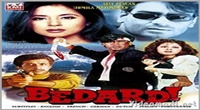
Zindagi Full HD Movie Download

Pataal Bhairavi Full HD Movie Download
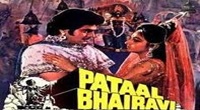
Amrapali (1966) Full HD Movie Download
.jpg)
Maidan-E-Jung Full HD Movie Download

Gharana (1989) Full HD Movie Download
.jpg)
Mean Machine Full HD Movie Download

Raajadaani Full HD Movie Download

Moggina Manasu Full HD Movie Download

Suguna Sundari Katha Full HD Movie Download
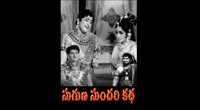
Jigar Baaz Full HD Movie Download

Adikkurippu Full HD Movie Download

Kaliyamardhanam Full HD Movie Download

Kaaval Nilayam Full HD Movie Download

Anjali Full HD Movie Download

Samurai Full HD Movie Download

Paalu Neellu Full HD Movie Download
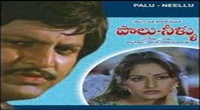
Sowrya Full HD Movie Download

Killar Jhansi Full HD Movie Download

Ishaqzaade (2012) Full HD Movie Download
.jpg)
Download latest Movie from bollywood
- 1> baaghi 3
- 2> THE SKY IS PINK MOVIE FULL STORY AND REVIEW
- 3> Luka Chuppi
- 4> TO ALL THE BOYS I’VE LOVED BEFORE
- 5> Kabir Singh
- 6> Street Dancer 3D
- 7> Simmba
- 8> Gone Girl
- 9> The Girl Who Lived
- 10> Ludo
- 11> DILWALE DULHANIA LE JAYENGE
- 12> GUILTY
- 13> The Godfather
- 14> Adventures of Rusty
- 15> Sooryavanshi
- 16> Satyameva Jayate 2
- 17> Thappad
- 18> Bhool Bhulaiyaa 2
- 19> KGFChapter 2
- 20> Mardaani 2
- 21> Pinjar
- 22> Shivaji maharaj
- 23> Ek Villian 2
- 24> Hungama 2
- 25> Divergent
- 26> Mumbai Saga
- 27> The Internship
- 28> HIT (telugu)
- 29> Panga
- 30> The perfect date
- 31> 16 December
- 32> Gopala Gopala (Telugu)
- 33> Brahmastra
- 34> Gangubai Kathiawadi
- 35> Manmadhudu
- 36> Nenu local
- 37> Mahanati
- 38> Shatamanam bavathi
- 39> Lagaan
- 40> After
- 41> MOM
- 42> Shamshera
- 43> Raguvaran BTech
- 44> Khakee
- 45> The villain
- 46> OM
- 47> Mr. perfect
- 48> Bueatifull mind
- 49> Hichki
- 50> Gabbar Singh
- 51> Jogi
- 52> Before Sunrise
- 53> Before Sunset
- 54> Before Midnight
- 55> The Big Bull
- 56> Top Gun: Maverick
- 57> The Purge
- 58> The Sky is Pink
- 59> Laxmmi Bomb
- 60> Sadak 2
- 61> Sufna
- 62> Prithviraj
- 63> PK
- 64> Coolie No 1(2020)
- 65> Black Widow
- 66> Dear Zindagi
- 67> Dil Bechara
- 68> PHIR HERA PHERI
- 69> WAR
- 70> Dostana
- 71> RRR: Roudram Ranam Rudhiram
- 72> Maidan
- 73> Dabbang 3
- 74> Chhalaang
- 75> life as we know it
- 76> SherShaah
- 77> Sandeep Aur Pinky Faraar
- 78> Event Horizon
- 79> 83
- 80> Radhe: Your Most Wanted Bhai
- 81> Gunjan Saxena: The Kargil Girl
- 82> Mr India
- 83> Vivah
- 84> Anokha Bandhan
- 85> Ghost
- 86> Bhoot: Part One - The Haunted Ship
- 87> Haseen Dilruba
- 88> Laal Singh Chaddha
- 89> Qismat
- 90> Rajput
- 91> Drive
- 92> Dil Chahta Hai
- 93> Dil Ki Baazi
- 94> Dil Ka Rishta
- 95> Teesri Manzil
- 96> Dil
- 97> Love Aaj Kal
- 98> Khaali Peeli
- 99> Bunty Aur Babli 2
- 100> Atrangi Re
- 101> Gulabo Sitabo
- 102> Jodi
- 103> Suraj Pe Mangal Bhari
- 104> Deewana
- 105> Attack
- 106> Sardar Udham Singh
- 107> Toofan
- 108> THE LOVEBIRDS
- 109> Jersey
- 110> Ginny Weds Sunny
- 111> Thalaivi
- 112> Shiddat
- 113> Angels vs Zombies
- 114> Koi Mil Gya
- 115> Thank God
- 116> Bhuj: The Pride of India
- 117> Hum Aapke Hain Kaun
- 118> The Platform
- 119> Bird Box
- 120> Roohi Afzana
- 121> Torbaaz
- 122> Nikamma
- 123> World War Z
- 124> Extraction
- 125> Train to Busan
- 126> Life of Pi
- 127> SHAADI MEIN JROOR AANA
- 128> Himmat Aur Mehnat
- 129> To All The Boys: P.S. I Still Love You
- 130> Mimi
- 131> Good Newwz
- 132> Shubh Mangal Zyada Saavdhan
- 133> Raabta
- 134> Harry Potter and the Philosopher's Stone
- 135> Harry Potter and the Chamber of Secrets
- 136> Chhapaak
- 137> War of the Worlds
- 138> Harry Potter and the Prisoner of Azkaban
- 139> Harry Potter and the Goblet of Fire
- 140> MURDER MYSTERY
- 141> Shakuntala Devi
- 142> Bachchan Pandey
- 143> Jayeshbhai Jordar
- 144> Sheer Qorma
- 145> Saina
- 146> 'O' Pushpa I hate tears
- 147> Kedarnath
- 148> MS Dhoni The Untold Story
- 149> Chhichhore
- 150> Badhaai Ho
- 151> Unstoppable
- 152> Oz the Great And Powerful
- 153> The Girl on the Train
- 154> Haathi Mere Saathi 2020
- 155> The Conjuring: The Devil Made Me Do It
- 156> Gandhi Se Pehle Gandhi
- 157> The Song of Scorpions
- 158> Srimanthudu
- 159> Hello Guru Prema Kosame
- 160> Beauty and The Beast
- 161> Black Panther
- 162> Charlie and the Chocolate Factory
- 163> Bole Chudiyan
- 164> Fidaa
- 165> Duvvada Jagannadham
- 166> Bruce Lee: The Fighter
- 167> Hyper
- 168> Yaara
- 169> Red (2020)
- 170> Shivam
- 171> That Is Mahalakshmi
- 172> Nishabdham
- 173> Aashram 2020 web series
- 174> Laxmii
- 175> Mismatched
- 176> STUDENT OF THE YEAR 2
- 177> NAIL POLISH
- 178> Ramprasad Ki Tehrvi
- 179> KAAGAZ
- 180> 12 o Clock
- 181> The Power
- 182> bolo hau
- 183> Tribhanga
- 184> JAMUN
- 185> Madam Chief Minister
- 186> Maasaab
- 187> Aadhaar
- 188> Tanhaji
- 189> Bhaagi 3
- 190> Bhootnath
- 191> MALANG
- 192> Jai Mummy Di
- 193> Haathi Mere Saathi 2021
- 194> Shakeela
- 195> Unpaused
- 196> Annayya
- 197> Vamsoddharakudu
- 198> Mrugaraju
- 199> Narasimha Naidu
- 200> Sankranti
- 201> Manasu Maata Vinadhu
- 202> Anjaane
- 203> Apaharan
- 204> Bachke Rehna Re Baba
- 205> Bewafaa
- 206> Roohi
- 207> Radhe
- 208> Zindagi Khoobsoorat Hai
- 209> Yeh Mohabbat Hai
- 210> Yeh Kya Ho Raha Hai?
- 211> The Tomorrow War
- 212> DehradunDiary
- 213> Meri Shaadi Karaoo
- 214> Matruu Ki Bijlee Ka Mandola
- 215> No One Killed Jesica
- 216> Aag Ka Goola
- 217> Eight Million Dollars
- 218> Three Hundred
- 219> Cats and Dog
- 220> Decoy
- 221> Gold Rush
- 222> You Have Got Mail
- 223> Final Destination three
- 224> Tofan
- 225> Jungle
Request for Download movie The Southerner 1945 Film
- Bollywood movies
- Latest Bollywood movies
- Download all bengali movies
- Download all bhojpuri movies
- Download all english movies
- Download all gujarati movies
- Download all hindi movies
- Download all kannada movies
- Download all malayalam movies
- Download all marathi movies
- Download all oriya movies
- Download all punjabi movies
- Download all tamil movies
- Download all telugu movies
- Bollywood action movies
- Bollywood adventure movies
- Bollywood animation movies
- Bollywood classical movies
- Bollywood comedy movies
- Bollywood crime movies
- Bollywood devotional movies
- Bollywood documentary movies
- Bollywood drama movies
- Bollywood family movies
- Bollywood fantasy movies
- Bollywood historical movies
- Bollywood history movies
- Bollywood horror movies
- Bollywood musical movies
- Bollywood mystery movies
- Bollywood mythological movies
- Bollywood patriotic movies
- Bollywood romance movies
- Bollywood romantic movies
- Bollywood sci-fi movies
- Bollywood social movies
- Bollywood spiritual movies
- Bollywood sports movies
- Bollywood suspense movies
- Bollywood thriller movies
- Bollywood war movies
- Hot actress list
- Hot gujarati actress list
- Hot tamil actress list
- Hot bhojpuri actress list
- Hot assam actress list
- Hot bihari actress list
- Hot jammu and kashmir actress list
- Hot gujarati actress list
- Hot haryana actress list
- Hot konkani actress list
- Hot marathi actress list
- Hot odia actress list
- Hot punjabi actress list
- Hot rajasthani actress list
- Hot kannada actress list
- Hot malayalam actress list
- Hot telugu actress list
- Hot tulu actress list
- Hot Actress list from Indian city
- Hot actress list from ahmedabad
- Hot actress list from alappuzha
- Hot actress list from bangalore
- Hot actress list from bangalore
- Hot actress list from bhopal
- Hot actress list from chandigarh
- Hot actress list from chennai
- Hot actress list from guwahati
- Hot actress list from hyderabad, india
- Hot actress list from indore
- Hot actress list from jaipur
- Hot actress list from kannur
- Hot actress list from kochi
- Hot actress list from kolkata
- Hot actress list from kollam
- Hot actress list from kottayam
- Hot actress list from kozhikode
- Hot actress list from lucknow
- Hot actress list from madurai
- Hot actress list from mangalore
- Hot actress list from mumbai
- Hot actress list from mysore
- Hot actress list from new delhi
- Hot actress list from patna
- Hot actress list from pune
- Hot actress list from thiruvananthapuram
- Hot actress list from thrissur
- Hot actress list from tiruchirappalli
- Hot actress list from vijayawada
- Hot actress list from visakhapatnam
- All Bollywood Movies
- Bollywood Celeb
- >Art Director
- >Audiography
- >Background Music
- >Banner
- >Choreographer
- >Cinematographer
- >Costume Designer
- >Dialogue Writer
- >Director
- >Distributor
- >Editor
- >Executive Producer
- >Hair Stylist
- >Lyricist
- >Music Director
- >Photographer
- >Playback Singers
- >Presenter
- >Producer
- >Production Company
- >Production Designer
- >Screenplay
- >Singer
- >Sound
- >Actor
- >Story Writer
- >Studio
- >Video Director
- >Miscellaneous
- >Publicity (pro)
- >Web Creator
- >Production Labs
- >Publicity Design
- >Publicity Stills
- >Writer
- >Miscellaneous Artists
- >Visual Effects
- >Reporter
- >Music Company
- >Shooting Studios
- >Picturised On
- >Line Producer
- >Co Producer
- >Asst Director
- >Casting Director
- >Cinematography
- >Choreography
- >Dialouge
- >Editing
- >Lyrics
- >Music
- >Story
- >Playback Singer Female
- >Playback Singer Male
- >Actor In A Comic Role (male/female)
- >Child Artiste
- >Ensemble Cast
- >Actor Popular Choice (male)
- >Actor Popular Choice (female)
- >Sa Re Ga Ma Pa Song Of The Year
- >Actor In Supporting Role
- >Actress In Supporting Role
- >Actor In Leading Role
- >Art Direction
- >Actress In Leading Role
- >Sound Recording
- >Costume Design
- >Special Effects
- >Action
- >Actor In A Negative Role
- >Lifetime Achievement Award
- >Cinematic Exellence (director)
- >Cinematic Exellence (male)
- >Cinematic Exellence (female)
- >International Male Icon
- >International Female Icon
- >Actor In A Supporting Role (male)
- >Actor In A Supporting Role (female)
- >Actor In A Comic Role
- >Playback Singer (male)
- >Playback Singer (female)
- >Most Promising Debut (female)
- >Most Promising Debut (male)
- >Most Promising Director
- >Sound Design
- >Lifetime Jodi
- >Marketed Film
- >Jury Award For Best Actor
- >Jury Award For Best Actress
- >Jury Award For Best Film
- >Jury Award For Best Director
- >Playback Singer(male)
- >Lifetime Acheivement Award (male)
- >Excellence Award
- >Jodi Award
- >Performer Of The Year
- >Presented By
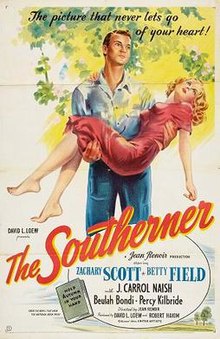 Story of movie The Southerner 1945 Film :
Story of movie The Southerner 1945 Film : 